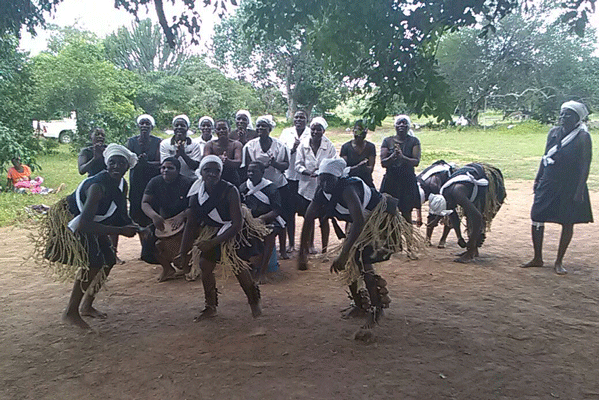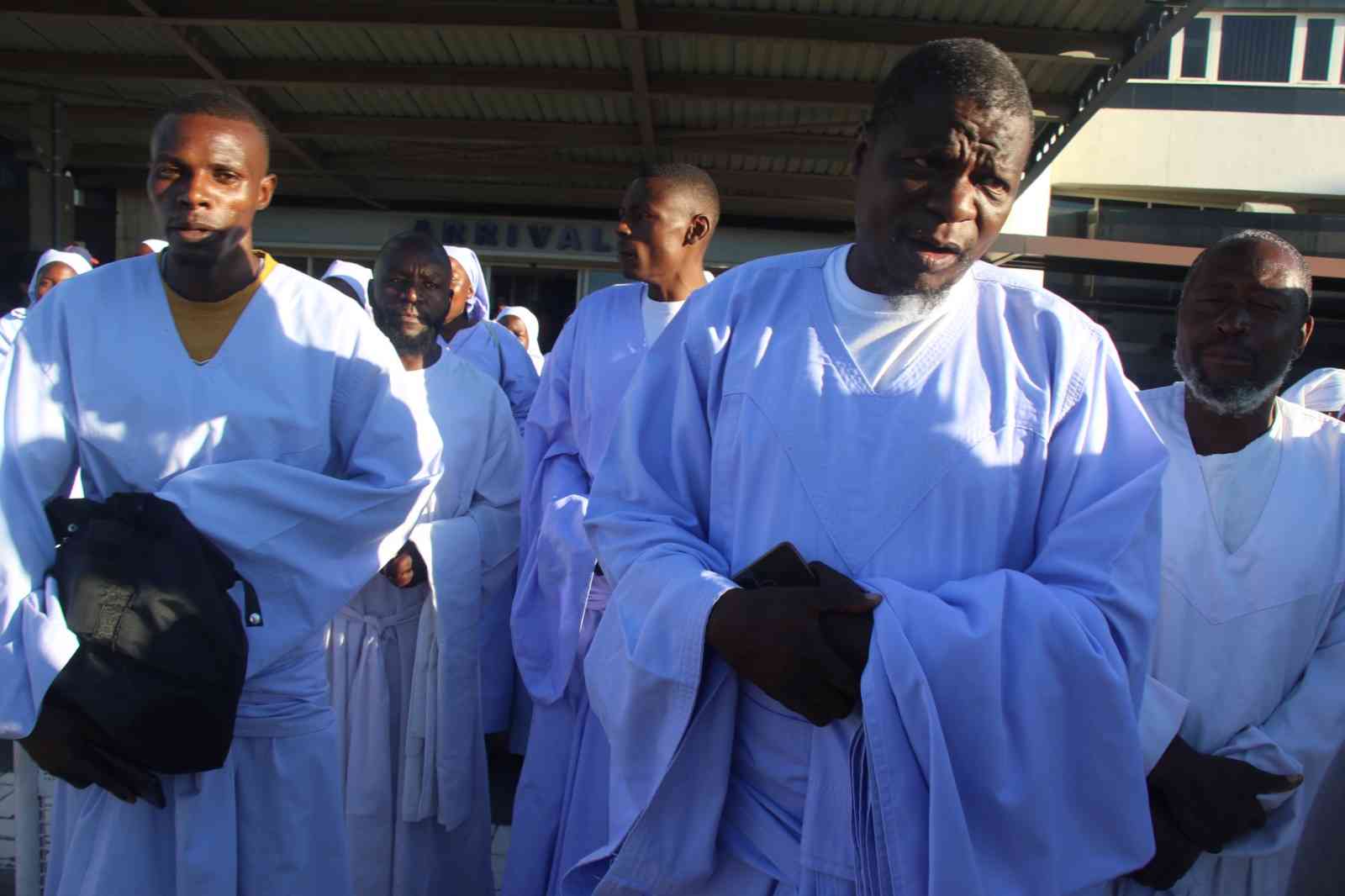
A group of young and elderly women clad in black and white traditional dance regalia sat at a secluded place waiting for their turn to perform during an event in Matande, Mwenezi in Masvingo Province.
By Jairos Saunyama

The group that is made up of elderly women endured the lengthy hours of waiting for their turn to perform while at the same time sharing water from a five-litre container as they cooled off the high temperatures often associated with the area.
The traditional dance outfit — Matande-Rutawo Traditional Dance — is popular in the area, and well-known in every corner of the province for their Shana dance exploits.
But theirs is a sad story indeed.
Being in existence for more than 10 years, the group that comprises 20 women and one man has nothing to show for their exploits, except being the first choice when performing at political gatherings and other community gatherings.
“We are popular here; we are well-known as the best traditional dance group. There is no function that is held in this area and other areas in the province that we don’t grace. Our acts are polished and we rule in this sector,” boasted Loveness Gatawa, one of the group members.
“However, we get nothing in return out of all this. After being ferried to events packed in trucks, we return home empty-handed.
- Chamisa under fire over US$120K donation
- Mavhunga puts DeMbare into Chibuku quarterfinals
- Pension funds bet on Cabora Bassa oilfields
- Councils defy govt fire tender directive
Keep Reading
“After a tiresome performance we are offered maheu [a traditionally-brewed opaque drink] and sadza. That’s all”.
She added; “No one ever thinks that we need something to take home to our families. I appeal to you if you can assist us so that people pay us for our performances.”
Matande-Rutawo Traditional Dance Group is one of the many rural-based cultural groups in the country that are exploited by political parties, civic organisations and others who secure their services and pay them with food and drinks.
These ensembles are sometimes forced to perform at political gatherings in the name of charity.
“We hear that Jah Prayzah is charging thousands of dollars just for an hour in Harare, but here in Mwenezi it is different. We do not even charge, we are just invited into field days and other functions. We return home with little or nothing, sometimes T-shirts or hats. On rare occasions we get a few dollars,” said another member of the group who declined to be named.
This paper, however, observed that despite the ensemble oozing with talent, there was no proper operational structure.
The group had no rate card and had no idea how to charge their clients so that they earn something out of their creativity and sweat.
According to the members, the only time they grabbed an opportunity to go home with $100 was when they took part in the Chibuku Neshamwari dance competitions held in Chivi last year.
A number of traditional dance groups based in the remote areas of the country are being exploited as they are unaware of how to commercialise their acts.
Goromonzi-based Ngoma Dzepasi Traditional Dance Group founder Alfred Chiyangwa, affectionately known as Mambo Mukuvapasi, said rural cultural dance groups were regarded as marginalised and had no support from relevant stakeholders.
“Leading a rural-based traditional dance group is a difficult thing,” said Mukuvapasi.
“No one ever thinks of you, no one sees you. The system thinks that supporting those cultural groups is a waste of time. We are in deep trouble.”
Sweden-based arts advocate Luckson “Manlurkers” Chikutu who founded the famous Zimbabwe Music Festival Bira said rural-based arts groups needed to embrace technology.
“They must not stop fighting for something better. They should set out their aims, objectives and goals for the future. They should have this, finding commitment and discipline in their artwork. They can go far,” said Chikutu.
“When they engage themselves, they should not think about money everytime. They should consider satisfying the public with an advanced better quality of the art produced.
“Quality of artwork can get them to go far. Due to technological advancement, they should make videos and put them on YouTube; they can also make a simple website of their artwork. These rural groups should take advantage of social media to market themselves and become visible.”
Meanwhile, the affairs of traditional and cultural dance groups are now being handled by the ministry of Rural Development, Preservation and Promotion of Culture and Heritage.
According to a culture officer who refused to be named, government will soon embark on a registeration exercise of all groups in the rural areas before holding a meeting to strategise on the way forward.
“It is true that rural-based traditional dance and cultural groups are reeling in poverty and that they do not know how to go about commercialising their acts like other artists are doing. Currently in some districts, culture officers are busy creating a database of all these groups.
“They should be called to a meeting where they strategise and even come up with a rate card for their performances.
A positive result will be achieved but the problem that we have is that cultural officers have no resources to travel into the rural areas to execute the duties,” said the officer.
Zimbabwe National Traditional Dancers Association president Kennedy Kachuruka confirmed that the exploitation of traditional dance groups was prevalent in rural communities and urged those who hire the groups to consider the importance and value of their artwork.
He said the groups needed money for them to continue growing and improving their performances.
“You find out that those who invite the groups do not see the importance of cultural dances. They would rather invite, for example, a musician who they can pay $2 000 or $3 000 when they cannot pay even $300 to a group of 15 people from a rural community,” he said.
“To us, if they invite groups to perform for free or what is called ‘food for work’, when they have already eaten at their homes, then they say we will buy you food for $10. The question is why can’t they give the group the same $10 so that they will see what to do with it with their families? Those inviting the groups have been exploiting them.”
Kachuruka urged cultural groups in the remote areas to get registered and legitimise the acts.
With promises of assistance from stakeholders, members of the Matande-Rutawo Traditional Dance group hope that one day their fortunes will take a turn for the better. They dream of their group owning a commuter omnibus, among other assets. However, as it stands, the 20-plus member-group continues to brave the harsh weather conditions at the back of battered trucks on their way to political rallies where they are paid with clapping of hands and being first preferences in the line to get t-shirts and food.











